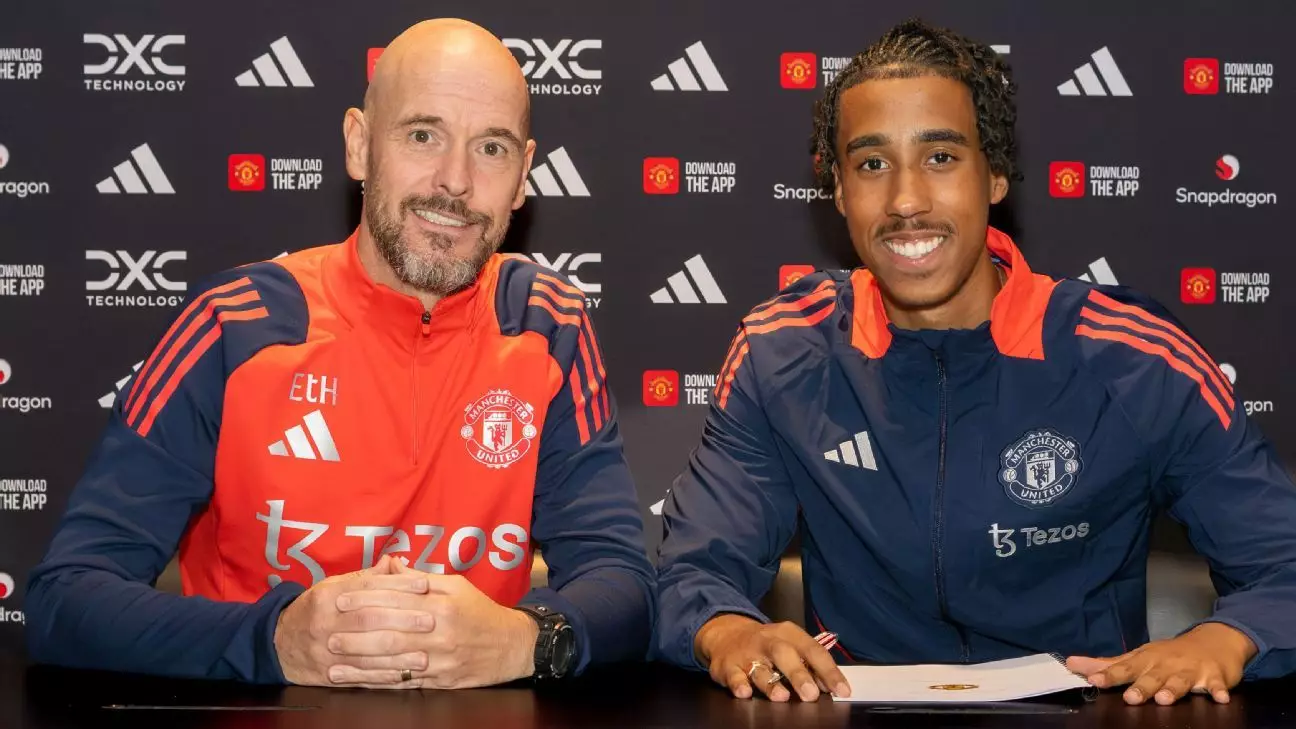Manchester United’s recent signing of 18-year-old defender Leny Yoro for £52.1 million marks a significant shift in the club’s recruitment policy. In a bold move orchestrated by minority owner Sir Jim Ratcliffe, United managed to beat out competition from major rivals like Real Madrid and Paris Saint-Germain to secure the services of one of the brightest young talents in the game. This signing signifies a departure from the club’s previous approach of overspending on aging players and prioritizes decisiveness over desperation in the transfer market.
For years, Manchester United has struggled to compete with top clubs in securing young talent, often losing out on players to rival teams with deeper pockets. However, the Yoro signing demonstrates a shift in mindset, with the club now targeting top young prospects and moving swiftly to finalize deals. This change in approach is a result of an audit conducted by Ratcliffe’s INEOS team after acquiring a minority stake in the club, which highlighted the need for a more efficient and strategic recruitment strategy.
United’s recent signings of players like Jadon Sancho, Antony, and Rasmus Højlund have come with hefty price tags, but the acquisition of Yoro stands out as a differentiator. Unlike previous signings, where United faced little to no competition, the pursuit of Yoro involved overcoming rival offers and negotiating a realistic fee. This shift towards targeting promising young talent reflects Ratcliffe’s vision of building a sustainable and successful team for the future.
In addition to focusing on incoming transfers, Manchester United has also taken a more proactive approach towards offloading underperforming or surplus players. The departures of Raphaël Varane, Anthony Martial, and others signal a willingness to make tough decisions and streamline the squad. This new-found ruthlessness contrasts with the club’s previous policy of holding onto players past their prime in fear of incurring replacement costs.
Under Ratcliffe’s leadership, United has restructured the football operations department with the hiring of key personnel like CEO Omar Berrada, sporting director Dan Ashworth, and technical director Jason Wilcox. This new leadership team has introduced a more methodical and efficient approach to player recruitment, focusing on targeting players in the final year of their contracts to leverage financial advantages over other clubs.
One notable change in the recruitment process is the reduced role of manager Erik ten Hag in decision-making. While Ten Hag still provides input, the primary responsibility for player acquisitions now lies with Ashworth and Wilcox. This shift allows for a more objective and strategic approach to signings, minimizing the risk of last-minute panic buys and ensuring thorough evaluation of potential targets.
As the summer transfer window unfolds, Manchester United remains focused on strengthening key areas of the squad, particularly in the defensive midfield and central defense positions. The club’s newfound emphasis on efficient spending and strategic planning bodes well for the future, signaling a departure from past seasons plagued by haphazard recruitment and inflated transfer fees.
Manchester United’s recent recruitment strategy overhaul represents a significant step towards building a competitive and sustainable team for the future. By prioritizing young talent, adopting a more decisive approach to transfers, and streamlining player exits, the club is laying the foundation for long-term success. While the true test of this new strategy will be seen on the pitch, the early signs are promising, offering hope for a new era of success at Old Trafford.
